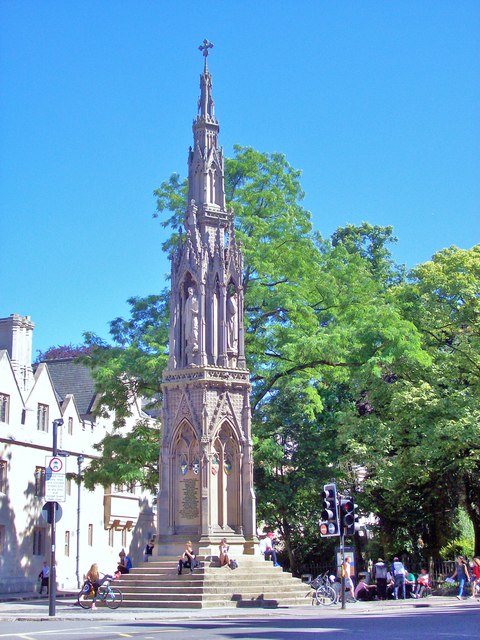LECTURE 2 continued
But we must compare The greatness of priesthood began in Melchisedek, was solemnized in Aaron, continued in the children of Aaron, perfected in Christ, represented in Peter, exalted in the universal jurisdiction, and manifested in the pope. So that through this pre-eminence of my priesthood, having all things subject to me, it may seem well verified in me, that was spoken of Christ, "Thou has subdued all things under His feet, sheep and oxen, and all cattle of the field, the birds of heaven, and fish of the sea," etc.: where it is to be noted that by oxen, Jews and heretics, by cattle of the field, pagans be signified..by sheep and all cattle are meant all Christian men, both great and less, whether they be emperors, princes, prelates, or others; by birds of the air you may understand angels and potentates of heaven, who be all subject to me, in that I am greater than the angels, and that in four things, as afore declared, and have power to bind and loose in heaven, and to give heaven to them that fight in my wars; lastly, by the fishes of the sea, are signified the souls departed, in pain or in purgatory.
All the earth is my diocese, and I am the ordinary of all men, having the authority of the King of all kings upon subjects. I am all in all and above all, so that God Himself and I, the vicar of God, have but one consistory, and I am able to do almost all that God can do. In all things that I list, my will is to stand for reason; for I am able by the law to dispense above the law, and of wrong to make justice in correcting laws and changing them..Wherefore if those things that I do be said not to be done of man, but of God, what can you make me but God? Again, if prelates of the Church be called and counted of Constantine for gods, I then, being above all prelates, seem by this reason to be above all gods. Wherefore no marvel if it be in my power to change time and times, to alter and abrogate laws, to dispense with all things, yea, with the precepts of Christ; for where Christ biddeth Peter put up his sword, and admonishes His disciples not to use any outward force in revenging themselves, do not I, Pope Nicholas, writing to the bishops of France, exhort them to draw out their material swords? And whereas Christ was present Himself at the marriage in Cana of Galilee, do not I, Pope Martin, in my distinction, inhibit the spiritual clergy to be present at marriage feasts, and also to marry? Moreover where Christ biddeth us lend without hope of gain, do not I, Pope Martin, give dispensation for the same? What should I speak of murder, making it to be no murder or homicide to slay them that be excommunicated? Likewise against the law of nature, item against the apostles, also against the canons of the apostles, I can and do dispense; for where they in their canon command a priest for fornication to be deposed, I, through the authority of Sylvester, do alter the rigor of that constitution, considering the minds and bodies also of men to be weaker than they were then.
After that I have now sufficiently declared my power in earth, in heaven, in purgatory, how great it is, and what is the fullness thereof in binding, loosing, commanding, permitting, electing, confirming, disposing, dispensing, doing, and undoing, etc., I will speak now a little of my riches and of my great possessions, that every man may see by my wealth, and abundance of all things, rents, tithes, tributes, my silks, my purple miters, crowns, gold, silver, pearls and gems, lands and lordships. For to me pertaineth first the imperial city of Rome, the palace of Lateran; the kingdom of Sicily is proper to me; Apulia and Capua be mine. Also the kingdom of England and Ireland, be they not, or ought they not to be, tributaries to me? To these I adjoin also, besides other provinces and countries, both in the occident and orient, from the north to the south, these dominions by name. [Here follows a long list.] What should I speak here of my daily revenues, of my firstfruits, annats, palls, indulgences, bulls, confessionals, indults and rescripts, testaments, dispensations, privileges, elections, prebends, religious houses, and such like, which come to no small mass of money?..Whereby what vantage cometh to my coffers it may partly be conjectured..But what should I speak of Germany, which the whole world is my diocese, as my canonists do say, and all men are bound to believe; except they will imagine (as the Manichees do) two beginnings, which is false and heretical? For Moses saith, In the beginning God made heaven and earth; and not, In the beginnings. Wherefore, as I began, so I conclude, commanding, declaring, and pronouncing, to stand upon necessity of salvation, for every human creature to be subject to me (Foxe: "Acts and Monuments," vol. 4., p. 145).
It is futile to allege that the Papacy does not make these claims and speak these great words against God, but in His name and as His representative. The answer is patent. This prophecy foretells what the power predicted would do, not what it would profess to do. Does the Papacy give God the glory, or does it glorify itself? Facts cannot be set aside by false pretensions. Satan disguises himself as an angel of light. The head of a Christian Church would not overtly array himself against Christ; if he does so, it will be under semblance of serving Him.1
The Papacy has abundantly branded on her own brow this particular of the prophecy -- the boastful, blasphemous claim to Divine authority and absolute dominion. It has assumed Divine attributes, and even the very name of God, and on the strength of that name claimed to be above all human judgment.
5. Lawlessness was the next feature we noted in the little horn. We have given above some specimens of the Papal claim to set aside all laws Divine and human.
The pope has also annulled the only surviving law of paradise, confirmed by the words of Christ. The Lord ordained, "What God hath joined together, let no man put asunder." The pope ordains, "We decide also that, according to the sacred canons, the marriages contracted by priests and deacons be dissolved, and the parties brought to do penance." The Papacy has further annulled the second commandment, given on the mount by the lips of God -- in theory, by the childish and false distinction between heathen idols and Christian images; and in practice, by hiding it from the people, and blotting it out from the catechisms of general instruction. The pope has further annulled the main laws of the gospel. He forbids the cup to the laity, although the Lord Himself has commanded, "Drink ye all of it." He forbids the people of Christ, in general, to use the word of God in their own tongue; though Christ Himself has charged them, "Search the Scriptures." He forbids the laity to reason or converse on the doctrines of the gospel; though St. Peter has commanded them, "Be ye ready to give a reason of the hope that is in you." The pope, finally, sanctions the invocation of saints and angels: though St. Paul has warned us, "Let no man beguile you of your reward in a voluntary humility and worshipping of angels"; though St. John has renewed the charge to the disciples of Christ, "Little children, keep yourselves from idols"; and an angel from heaven renews the caution, in his words to the same holy apostle, "See thou do it not, for I am thy fellow servant; worship God" (Birks, "First Two Visions of Daniel," pp. 258, 259).
6. Systematic and long continued persecution of the saints is one of the most marked features of the little horn of the prophecy. It is predicted that he should "wear out the saints of the Most High." His first great characteristic is blasphemous opposition to GOD; his next salient feature is oppressive cruelty towards men: and just as Christ allowed His people to suffer ten persecutions under the pagan emperors of Rome, so he allowed His faithful witnesses to be worn out by the cruelties of Papal Rome. "They shall be given into his hand." The Church has to tread in the footsteps of Christ Himself, who resisted unto blood striving against sin, and was put to death by the power of Rome. She is called to the fellowship of His sufferings; and while they secured the salvation of our race, hers have not been unfruitful, for the blood of the martyrs is the seed of the Church.
the facts of history with the prediction of prophecy on this point, to see how deeply this mark is engraved on the Papacy as upon no other power that has ever existed in the earth. That the Church of Rome and her Papal head have persecuted largely and long, none can pretend to deny; in fact, so far from denying it, Rome glories in it, and regards it as one of her greatest merits. Other nations have now abandoned as unsound "the bloody tenet of persecution." Rome retains it still, approves it theoretically, and would carry it out as vigorously as ever practically, if she could. Other powers have persecuted to a small extent and occasionally, in the past, but never systematically and by law throughout ages. All but Rome now hold religious liberty to be an inherent right of man. Rome has, on the other hand, persecuted on principle, and steadily from the seventh century right on to the French Revolution and to some extent almost to the present time. She does so still in the secret recesses of her nunneries and monasteries, under the name of penance. Why else does she require shops for the sale of instruments of bodily torture, such as exist this day in London?


